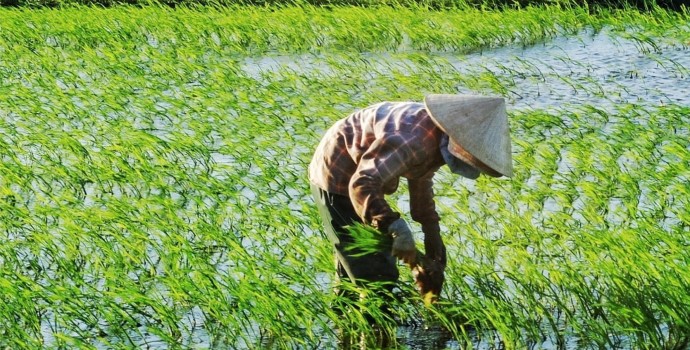- About Us
-
Who we are
-
- Publications
-
- ADPC Academy
-
MediaADPC'S NEWS
ADPC publishes a practitioner’s guidebook to promote climate-smart agriculture ADPC publishes a practitioner’s guidebook to promote climate-smart agriculture
15 Apr 2020
Bangkok, Thailand

To mitigate the impacts of climate change on agriculture sector, Asian Disaster Preparedness Center (ADPC) has published guidelines for local governments engaged in mainstreaming climate smart disaster risk reduction climate change adaptation.
Climate change affects different parts of Asia with rising temperatures, decreasing rainfall, rising sea levels and increasing frequency and intensity of extreme events. All of these climate events pose a significant risk of loss to a country’s agricultural sector if not prepared for and managed accordingly, and leads to further development issues like decreased economic output, lack of food security and an increase in socio-economic issues.
Local authorities, while inspired to make a change for the better in their communities, may be discouraged by a lack of capacity, funding or access to knowledge on climate change. With this in mind, ADPC has developed “Climate Smart Disaster Risk Reduction Interventions in Agriculture Sector - Flood Hazard - A Practitioner’s Guidebook” to be used by local government employees engaged in mainstreaming climate smart disaster risk reduction into development planning at local government level in the Asian Region.
The Guidebook presents lessons learned and climate-related interventions in Nepal, Sri Lanka and Thailand. Practitioners can mix and match a multitude of initiatives based on similar seasonal weather patterns and climate issues experienced in their own agricultural sectors.
Instructions are divided into the basic characteristics of climate change and natural hazard impacts, guidance on disaster management strategies and climate smart interventions such as flood management plans, agronomic measures, using climate information systems and implementing agricultural insurance schemes.
The Guidebook is part of the ADPC’s “Developing Climate Inclusive Potential Loss and Damage Assessment Methodology for Flood Hazards” project being implemented in collaboration with Deakin University, Australia, Department of Meteorology, Government of Sri Lanka and The Small Earth Nepal, with financial support from the Asia Pacific Network for Global Change Research in Japan.
Latest NewsRelated Trainings
-